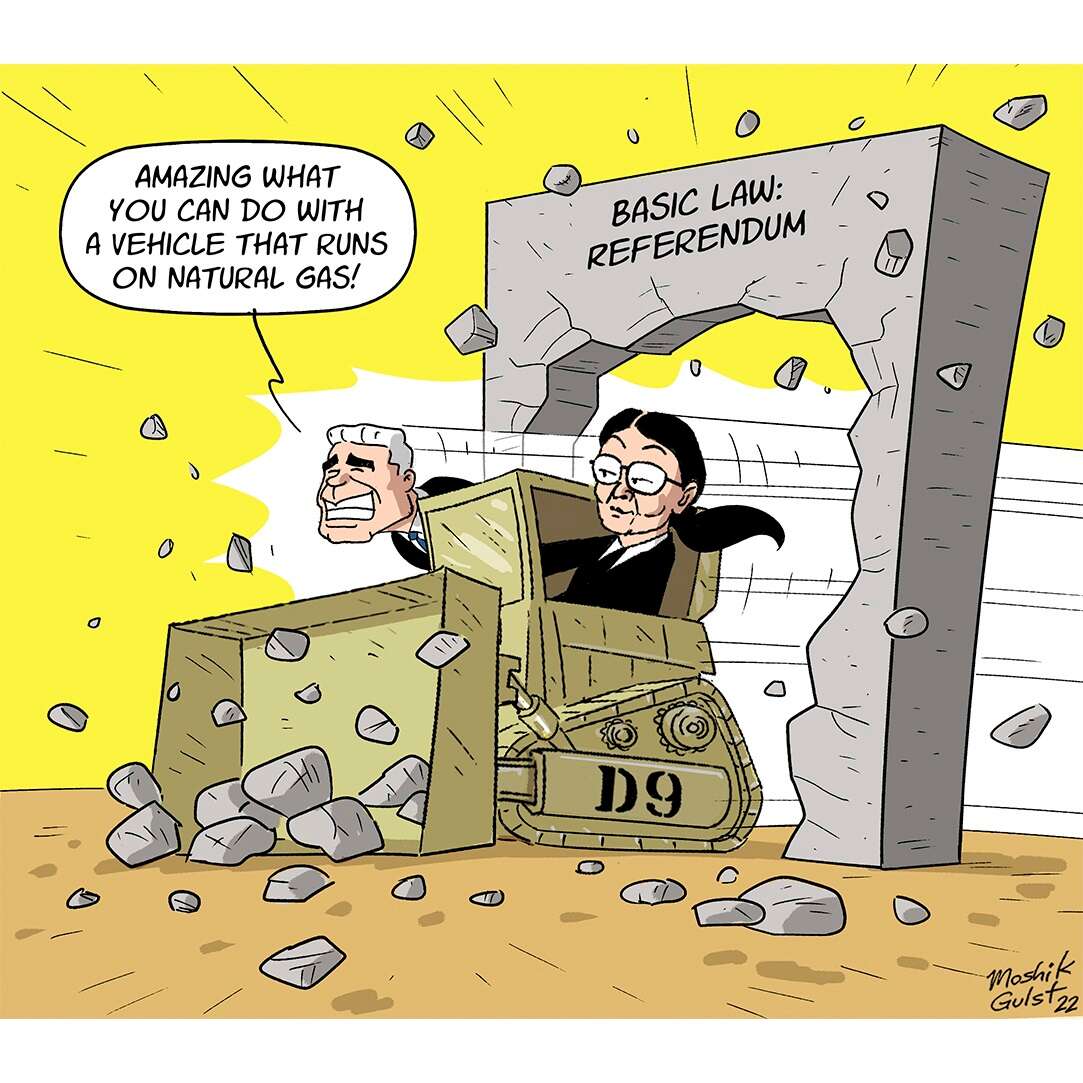Melanie Phillips: Dragons and dragon-slayers in Israel and America
Israel is indeed a state for the Jewish nation. However, membership in a nation confers obligations on its people to behave as a nation.With Europe at War, Israel’s Position Has Grown Stronger
After all, the Torah itself tells us that when the tribes of Reuben, Gad and half of Manasseh said they wanted to settle east of the Jordan because the pastures there were more fertile, they were told they could do so only on condition that they first fought alongside the other tribes to conquer the land of Israel.
But American Jews such as those in Mercaz Olami don’t feel bound by any such obligation. They not only choose not to live in Israel but also choose not to fight in its defense.
Instead, ensconced in a faraway land they prefer, they lob verbal missiles at the tribe from which they have separated themselves when it defends its Jewish identity in ways of which American Jews disapprove.
Their statement said Netanyahu’s coalition would include politicians “whose positions regarding basic elements of democracy and diversity … significantly differ from the values which have guided Zionism since its inception.” As a result, it threatened, Israel would lose the support of American Jews.
But that support is being lost anyway. Indeed, America’s Jewish community is losing its own members at an alarming rate.
The Conservative-Masorti movement’s pick-and-choose approach to Jewish laws, and their emptying out of Judaism by claiming as Jewish values ideologies that actually negate them, are causing the American Jewish community to hemorrhage.
The core reason is that such Jews have lost any sense of themselves as a nation. Instead, they have chosen to endorse a “progressive” view of the world that views the nation as illegitimate and therefore to be superseded by kumbaya universalism.
This is why most American Jews are on the wrong side of the titanic struggle in the U.S. over whether it still wants to be the nation it has always understood itself to be—or whether, given the divisions over uncontrolled immigration, it wants to be a nation at all.
The one thing all Israeli Jews understand is that Israel is their nation state. Therefore, their overwhelming concern when electing a government is that it should defend that state against the dragons that breathe fire against it.
That’s why, regardless of the undoubted unease within Israel over its new government and the internal battles that are unquestionably to come, its people are in a far better situation than those in America and the West—both Jews and non-Jews—who are now reloading their fraying slingshots to attack it.
Since Russia greatly expanded its war on Ukraine in February, much has changed in international relations. Eran Lerman examines how these changes have affected the Jewish state:"Palestinian Authority to End Push for International Court Ruling on ‘Occupation’"
Israelis are sensitive to the tragic aspects of the crisis, and sentiments of support have been aroused by the Ukrainians’ resolute stance and by the unique figure of Zelensky. . . . At the same time, in almost all aspects, the war has enhanced Israel’s national security equation—and bolstered its position in world affairs.
An element of immense importance, from a national and Zionist perspective, is the dramatic rise in the number of people making aliyah, in the face of danger and deprivation in both warring nations. Over 13,000 olim from Ukraine have arrived in Israel since February, and almost alone among the millions of war refugees, it has been the Jews (including those who may be non-Jews but are entitled to aliyah because they have one Jewish grandparent) who had a home to go to. A steadily growing flow is coming from Russia, as socioeconomic conditions keep deteriorating and the partial mobilization of reserves has been declared.
Meanwhile, . . . Israel’s defense industries, which provide an indispensable contribution both to the IDF’s qualitative edge and to the national economy, have been on the unimaginable brink of really taking off ever since the war broke out. During Prime Minister Lapid’s visit to Berlin, the option of a contract with Germany for the sale of Israel’s Arrow 3 missile defense system for more than $2 billion was put on the table.
Moreover, Lerman notes, the war has made the West more sensitive in general to the sorts of military threats Jerusalem faces every day, and in particular to the dangers posed by Iran, which has remained loyal to Moscow.
A senior Palestinian Authority (PA) official close to PA President Mahmoud Abbas confirmed to the Tazpit Press Service that Ramallah has acceded to a request by the U.S. and Israel to end efforts to refer Israel’s “occupation” to the International Court of Justice.
The International Court of Justice, based in The Hague, offers legal opinions on questions referred by either the United Nations Security Council or General Assembly. Jerusalem regards the court as biased and fears that a ruling would give a legal imprimatur to the Boycott, Divestment Sanctions campaign against Israel.
Although the US has veto power in the Security Council, the PA has wider support in the General Assembly.
The source also confirmed that PA leadership is sticking to its positions for the end of “attacks by the Israeli occupation,” settlement activity, Israel’s so-called “assault” on the Al Aqsa Mosque, and the return of tax money Jerusalem is withholding from Ramallah over the PA’s controversial stipends for PA terrorists and the families of “martyrs.”
He also said the PA particularly wants Israel to end to Operation Breaking the Wave. Near-nightly arrest raids, mostly in the areas of Shechem (Nablus) and Jenin, have foiled hundreds of Arab terror attacks. The operation was launched following a spate of deadly Arab terror attacks in the spring.
The source stressed that while US President Joe Biden has previously opposed unilateral PA measures, Jerusalem and Washington refuse to respond to Ramallah’s demands.



























.jpg)




